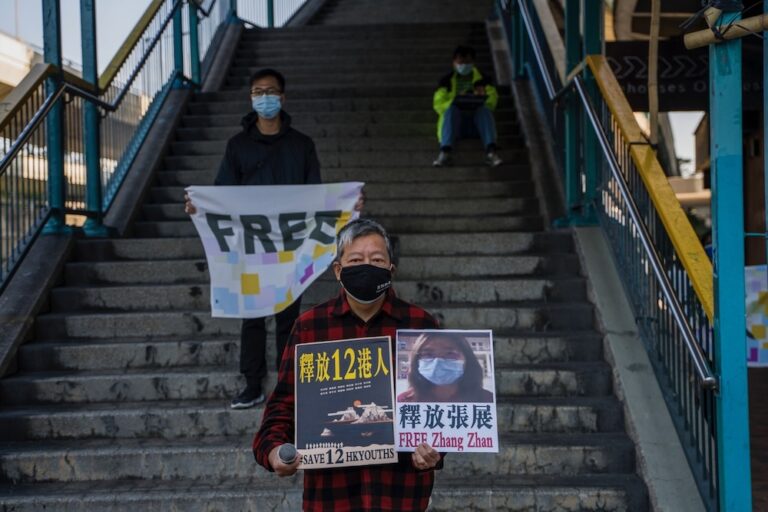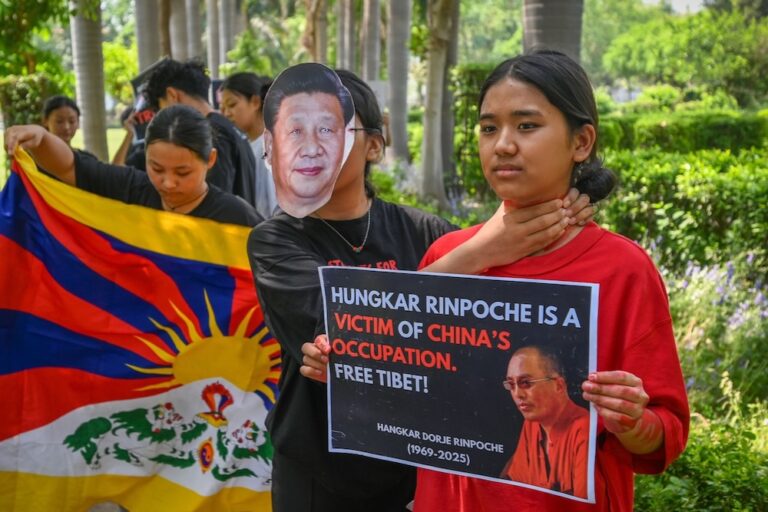Zhang Jialong, a journalist with online company Tencent, was suspended on 20 May and sacked on 23 May on allegations of “leaking business secrets and other confidential and sensitive information”.
The International Federation of Journalists (IFJ) is concerned about the sacking of a Chinese journalist who was dismissed because he called on the US Secretary of State, John Kerry, to help Chinese tear down China’s notorious online censorship system.
Zhang Jialong, a journalist with online company Tencent, was suspended on May 20 and sacked on May 23 on allegations of “leaking business secrets and other confidential and sensitive information”. Zhang said in his blog that he believed his dismissal was decided by Tencent with the intervention of propaganda authorities, including the Central Propaganda Department.
On May 24 Zhang wrote that his department head dismissed him, citing radical statements he made in an interview with the US Secretary of State, and propaganda directives he publicized online on February 15. Three other advocates of internet freedom, Wang Keqin, Ma Xiaolin and Wang Chong, were also present at the meeting with Mr Kerry.
In the interview, Zhang expressed his concern about internet censorship in China. He said he hoped the US could help “freedom-loving Chinese” tear down China’s notorious internet censorship system, known as the “Great Fire Wall”. He also expressed concern about the wellbeing of a number of prisoners of conscience, particularly human rights legal scholar Xu Zhiyong and writer Liu Xiaobo, Nobel Peace Prize laureate in 2010. He asked Mr Kerry whether he would visit Liu Xia, the wife of Liu Xiaobo, who is under house arrest.
The following day, propaganda authorities forbade all media to publish any report of the meeting with the Chinese social media bloggers.
Zhang’s supervisor demanded that he stop using his own name on any articles. The next working day, his name was removed from the company’s website and his computer was taken away.
Although facing tremendous pressure, Zhang continued to report and published an article on the Foreign Policy website on April 16 in which he said the number of detained media personnel and bloggers was increasing under President Xi Jinping. “Xi Jinping and his administrative are regarded as enemies of freedom of speech,” he said.
He also said the way in which propaganda authorities tried to silence him illustrated the Chinese Communist Party would not tolerate any dissenting voices. He also said he did not believe he could find a job in the media industry under a totalitarian regime.
The IFJ said: “It is disgraceful that the authorities cannot tolerate a journalist who speaks the truth. China has a notorious censorship system and the ability to exercise the right to free speech has been regressing dramatically since last year.”
The IFJ urges the Board of Tencent to investigate Zhang’s case and restore his right to work. We also urge President Xi Jinping and Premier Li Kiqiang to put a stop to any form of censorship that violates the basic rights of press freedom and freedom of expression which are enshrined in Article 35 of the Chinese Constitution.


